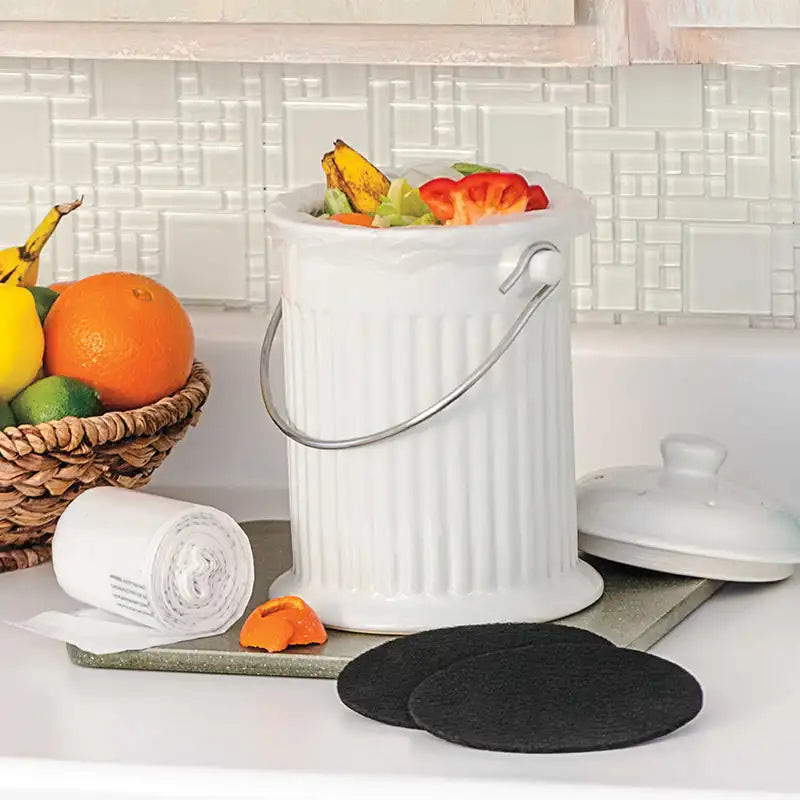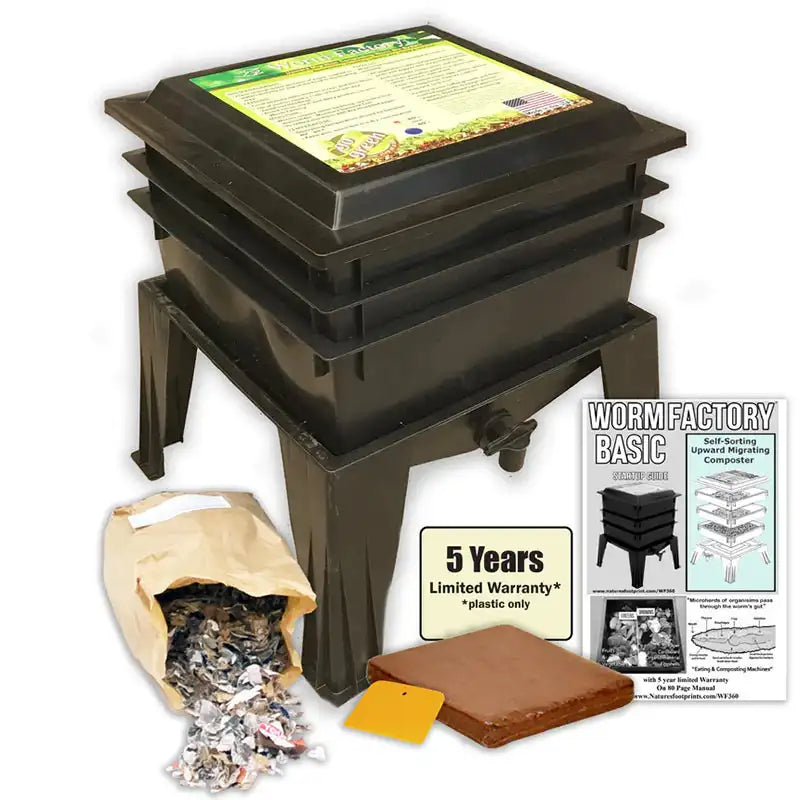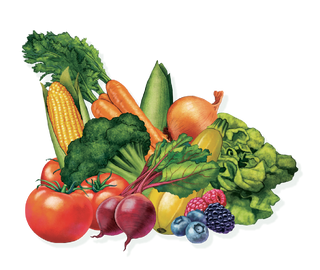Of Cow Manure and Compost Tea
Q. Elizabeth, who listens to us on her local NPR station, WETS, from East Tennessee State University in Johnson City, TN writes;
My conundrum is that I don't quite know how to make compost on the balcony of my apartment. I moved to a Senior Independent Living Community from 40 acres with a large home with an awesome shaded deck after my husband died last year. He faithfully cleaned the manure out of a neighbor's cow barn so there are some truly large piles of this manure on the property.
I know I can't have a large composting bin on the balcony, but am interested in doing what I can. The local gardening store used to have disks to make manure tea, but they don't have that anymore. They also don't sell small composting bins. I would welcome any insight you can share,
A. Well, as I see it, we have multiple issues here. First, condolences for your loss.
Which leads me to wonder what you're going to do with that wonderful old property. Are family members going to take it over? If so, they could probably use a lot of completely composted cow manure on a farm that size. Hopefully the dairy farmer doesn't heavily medicate the herd, but if there's bovine growth hormone and/or lots of antibiotics in there, the end product would be far from ideal.
But if it's relatively free of those kinds of medications, you have several options. Again, if the farm is to be sold or even passed down through the family, the new owners or care takers would welcome such treasure, as composted cow manure has a perfect mix of plant nutrients in a very gentle form. Unlike nitrogen heavy horse and poultry manures, composted cow manure is a great all-around fertilizer that provides an almost perfect mix of nutrients in concentrations so gentle, its unlikely to overfeed or otherwise harm any kind of plant.
I remember those manure pods you mention fondly (yes, we gardeners often have great fondness for manure!) They were flat, round and composed of a tea-bag-like covering. You dropped one or two into a quart of water, let them steep for awhile and then used the result as a gentle liquid fertilizer. You should be able to find them or something similar online; or you can make your own!
Hopefully, you still have access to the property so you and/or a helper can bring home a five-gallon bucket of the most finished material. Then, when you want to feed your plants, fill an old white tube sock about three-quarters of the way with the dried manure, tie it off and drop the sock into a bucket of clean water, and let it steep for several hours, stirring occasionally. Then use the result right away, as the mixture will begin to ferment otherwise.
Note to people fighting difficult plant disease problems. You don't hear about it much anymore, but back in the nineties a lot of people were making fermented compost and manure teas. You follow the same steeping directions, but then you place the bucket outdoors in a shady spot to ferment. After a few days to a week, a nasty-looking scum will form on top. Skim that off and pour the scum into a compost pile, as it is very active biologically and should not go to waste.
Let the remaining mixture sit for about two weeks, stirring and scumming frequently. Then carefully pour off most of the liquid into a different container. Solid material will have formed in the bottom; that also should go into a compost pile. Strain the remaining liquid through a kitchen strainer if you intend to use it as a spray on the plants' leaves. (Which is a great idea; fermented compost tea has been shown to work wonders when sprayed on diseased plants).
Otherwise, just pour the liquid onto the soil as a gentle fertilizer.
Two important notes: cover the bucket with mosquito screening when you first set it up to prevent mosquitoes from breeding--and to prevent your dog from drinking it. Dogs will drink anything!
Once you start using a batch, use it all up right away. The fermentation process greatly increases the amount of beneficial biological life in the bucket, but those helpful little guys quickly begin to die off from lack of oxygen once you stop the fermentation. Some mad scientists of organic gardening use aquarium bubblers to avoid this. If you choose to follow their lead the more bubblers the better.
As to your personal issue of wanting to continue composting, consider getting a worm bin. The hungry little red wigglers that populate such bins would love to chow down on your kitchen scraps.
True composting; meaning a mixture of dry brown materials and those kitchen scraps plus coffee grounds; would seem to be hard to achieve. But if you're willing to shred enough leaves in the fall to mix your kitchen waste into throughout the year, there are many sizes of compost bins, including ones that should be the right size and attractiveness for a balcony.
The site composters dot com will present you with more sizes and choices than you can possibility imagine. Good luck!
My conundrum is that I don't quite know how to make compost on the balcony of my apartment. I moved to a Senior Independent Living Community from 40 acres with a large home with an awesome shaded deck after my husband died last year. He faithfully cleaned the manure out of a neighbor's cow barn so there are some truly large piles of this manure on the property.
I know I can't have a large composting bin on the balcony, but am interested in doing what I can. The local gardening store used to have disks to make manure tea, but they don't have that anymore. They also don't sell small composting bins. I would welcome any insight you can share,
A. Well, as I see it, we have multiple issues here. First, condolences for your loss.
Which leads me to wonder what you're going to do with that wonderful old property. Are family members going to take it over? If so, they could probably use a lot of completely composted cow manure on a farm that size. Hopefully the dairy farmer doesn't heavily medicate the herd, but if there's bovine growth hormone and/or lots of antibiotics in there, the end product would be far from ideal.
But if it's relatively free of those kinds of medications, you have several options. Again, if the farm is to be sold or even passed down through the family, the new owners or care takers would welcome such treasure, as composted cow manure has a perfect mix of plant nutrients in a very gentle form. Unlike nitrogen heavy horse and poultry manures, composted cow manure is a great all-around fertilizer that provides an almost perfect mix of nutrients in concentrations so gentle, its unlikely to overfeed or otherwise harm any kind of plant.
I remember those manure pods you mention fondly (yes, we gardeners often have great fondness for manure!) They were flat, round and composed of a tea-bag-like covering. You dropped one or two into a quart of water, let them steep for awhile and then used the result as a gentle liquid fertilizer. You should be able to find them or something similar online; or you can make your own!
Hopefully, you still have access to the property so you and/or a helper can bring home a five-gallon bucket of the most finished material. Then, when you want to feed your plants, fill an old white tube sock about three-quarters of the way with the dried manure, tie it off and drop the sock into a bucket of clean water, and let it steep for several hours, stirring occasionally. Then use the result right away, as the mixture will begin to ferment otherwise.
Note to people fighting difficult plant disease problems. You don't hear about it much anymore, but back in the nineties a lot of people were making fermented compost and manure teas. You follow the same steeping directions, but then you place the bucket outdoors in a shady spot to ferment. After a few days to a week, a nasty-looking scum will form on top. Skim that off and pour the scum into a compost pile, as it is very active biologically and should not go to waste.
Let the remaining mixture sit for about two weeks, stirring and scumming frequently. Then carefully pour off most of the liquid into a different container. Solid material will have formed in the bottom; that also should go into a compost pile. Strain the remaining liquid through a kitchen strainer if you intend to use it as a spray on the plants' leaves. (Which is a great idea; fermented compost tea has been shown to work wonders when sprayed on diseased plants).
Otherwise, just pour the liquid onto the soil as a gentle fertilizer.
Two important notes: cover the bucket with mosquito screening when you first set it up to prevent mosquitoes from breeding--and to prevent your dog from drinking it. Dogs will drink anything!
Once you start using a batch, use it all up right away. The fermentation process greatly increases the amount of beneficial biological life in the bucket, but those helpful little guys quickly begin to die off from lack of oxygen once you stop the fermentation. Some mad scientists of organic gardening use aquarium bubblers to avoid this. If you choose to follow their lead the more bubblers the better.
As to your personal issue of wanting to continue composting, consider getting a worm bin. The hungry little red wigglers that populate such bins would love to chow down on your kitchen scraps.
True composting; meaning a mixture of dry brown materials and those kitchen scraps plus coffee grounds; would seem to be hard to achieve. But if you're willing to shred enough leaves in the fall to mix your kitchen waste into throughout the year, there are many sizes of compost bins, including ones that should be the right size and attractiveness for a balcony.
The site composters dot com will present you with more sizes and choices than you can possibility imagine. Good luck!



